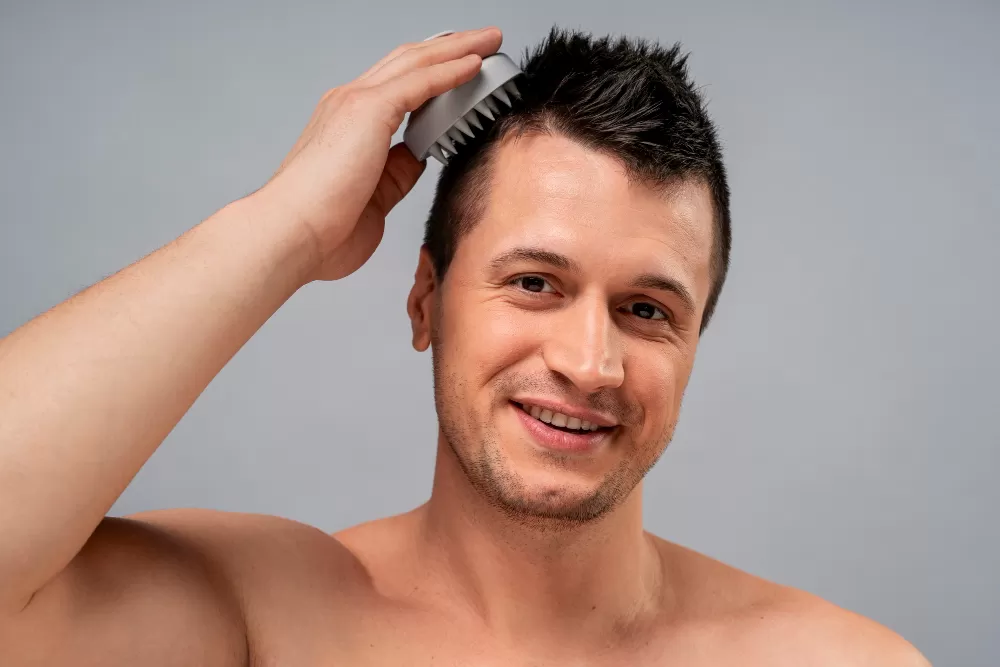A hair transplant is a popular and effective solution for addressing hair loss. However, the success of the procedure depends not only on the surgery but also on proper post-operative care, including nutrition. A well-balanced diet rich in essential nutrients supports the healing process, strengthens hair follicles, and promotes healthy hair growth. This article explores why nutrition is vital after a hair transplant and which foods can enhance hair health.
The Importance of Nutrition After a Hair Transplant
A hair transplant involves transferring hair follicles from a donor area to a recipient site. For the newly transplanted follicles to thrive, the body requires adequate nutritional support. Proper nutrition:
Speeds Up Healing: Nutrients like protein, vitamins, and minerals are essential for tissue repair post-surgery.
Strengthens Hair Follicles: Biotin, zinc, and iron play key roles in supporting healthy hair follicle development.
Reduces Hair Loss: A balanced diet can help prevent further hair loss and encourage stronger hair growth.
Supports Overall Health: A healthy body fosters optimal conditions for hair health.
During the initial weeks after a hair transplant, focusing on anti-inflammatory and healing-promoting foods is crucial. Following your doctor’s dietary recommendations can also minimize complications.
Foods That Support Hair Health
Incorporating the right foods into your diet can significantly impact the success of your hair transplant. Below are key nutrient groups and foods that promote hair health and recovery.
1. Protein Sources
Hair is primarily made of keratin, a protein. Adequate protein intake is essential for supporting hair growth and repair after a transplant.
Eggs: Rich in protein and biotin, eggs support hair follicle strength. Egg yolks also provide vitamin D and iron.
Chicken and Turkey: Lean protein sources like chicken and turkey supply amino acids necessary for hair follicle repair.
Fish: Fatty fish such as salmon, mackerel, and sardines are rich in omega-3 fatty acids and protein. Omega-3s help hydrate the scalp and reduce inflammation.
Lentils and Beans: These plant-based protein sources also contain iron and zinc, which are vital for hair health.
Tip: Aim for 1-2 servings of protein-rich foods daily. Protein deficiency can weaken hair and lead to hair loss.
2. Vitamins
Vitamins are critical for healthy hair growth and scalp health.
Biotin (Vitamin B7): Biotin supports keratin production, essential for hair, skin, and nails. Foods rich in biotin include whole grains, bananas, avocados, and nuts.
Vitamin C: This vitamin aids collagen production, strengthens hair follicles, and enhances iron absorption. Citrus fruits, bell peppers, strawberries, and kiwi are excellent sources.
Vitamin E: An antioxidant, vitamin E protects the scalp from free radical damage. Almonds, sunflower seeds, and spinach are rich in vitamin E.
Vitamin A: Helps maintain scalp moisture and supports hair follicle health. Carrots, sweet potatoes, and spinach are good sources.
Tip: Include a variety of colorful fruits and vegetables to ensure a broad spectrum of vitamins.
3. Minerals
Minerals are essential for the healthy development of hair follicles.
Iron: Iron supports oxygen delivery to hair follicles. Deficiency can contribute to hair loss. Red meat, spinach, lentils, and pumpkin seeds are iron-rich.
Zinc: Zinc aids in hair follicle repair and growth. Shellfish, pumpkin seeds, and cashews are excellent sources.
Magnesium: Supports overall scalp health. Almonds, spinach, and whole grains provide magnesium.
Tip: Pair iron-rich foods with vitamin C sources to boost absorption.
4. Omega-3 Fatty Acids
Omega-3 fatty acids hydrate the scalp, reduce inflammation, and enhance hair shine. Salmon, chia seeds, flaxseeds, and walnuts are rich in omega-3s.
Tip: Aim to consume fatty fish 2-3 times per week or incorporate plant-based omega-3 sources into your diet.
5. Antioxidants
Antioxidants protect hair follicles from free radical damage and support scalp health. Blueberries, spinach, broccoli, and green tea are rich in antioxidants.
Tip: Colorful vegetables and fruits are an excellent way to boost antioxidant intake.
Foods to Avoid After a Hair Transplant
Certain foods can hinder the healing process and should be avoided post-hair transplant:
Sugary and Processed Foods: High sugar content can increase inflammation and slow recovery.
Alcohol: Alcohol may impair blood circulation and delay healing.
Excessively Salty Foods: These can increase swelling and cause scalp sensitivity.
Fatty and Fried Foods: These may promote inflammation and negatively affect scalp health.
Post-Hair Transplant Nutrition Tips
Stay Hydrated: Proper hydration is essential for scalp and overall health. Aim to drink at least 2-3 liters of water daily.
Maintain a Balanced Diet: Focus on a variety of nutrients rather than relying on a single food group.
Consult Your Doctor: Nutritional needs vary by individual. Work with your doctor or a dietitian to create a personalized plan.
Consider Supplements: If your diet lacks certain nutrients, consult your doctor about taking biotin, zinc, or iron supplements.
Be Patient: Hair transplant results take time. Consistent nutrition supports long-term hair health.
Conclusion
Nutrition after a hair transplant is vital for ensuring the success of the procedure and promoting healthy hair growth. A diet rich in protein, vitamins, minerals, and omega-3 fatty acids supports healing, strengthens hair follicles, and enhances overall hair health. By maintaining a balanced diet and following your doctor’s guidance, you can optimize your hair transplant results and enjoy healthier, stronger hair.





No comments yet. Be the first to comment!